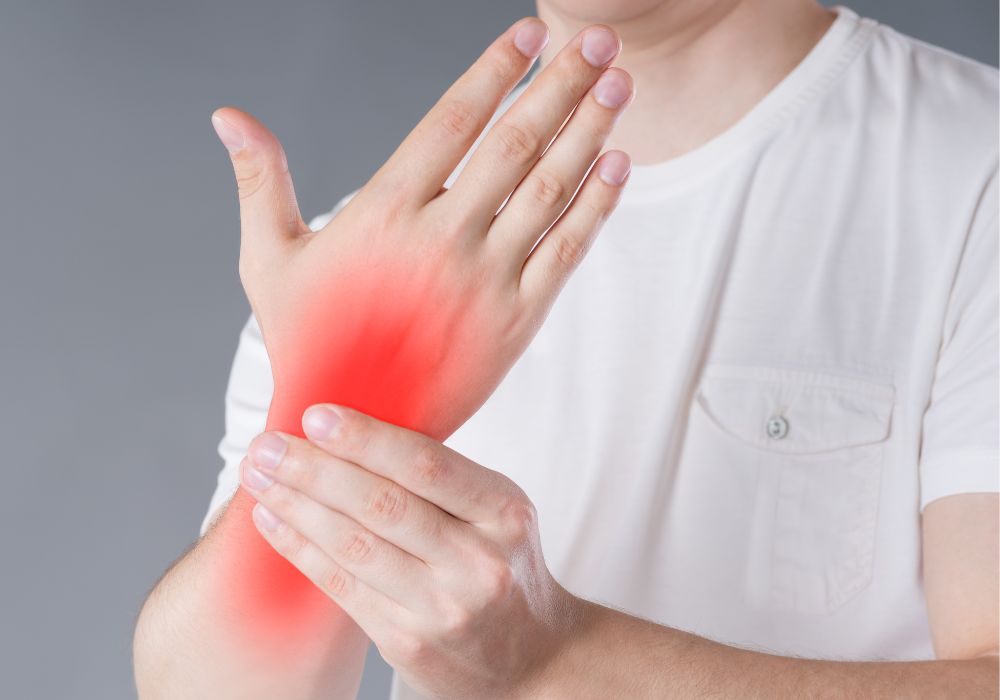Carpal Tunnel Syndrome
What it is?
Symptoms
1. Numbness or tingling in the thumb, index, middle, and ring fingers.
2. Weakness in the hand, making it difficult to grip objects or perform certain manual tasks.
3. Pain or discomfort in the hand and wrist region, which may radiate up the forearm or even to the shoulder.
4. Sensation of swelling in the fingers, even though there is no actual swelling.
These symptoms are typically worse at night and can disrupt sleep. They may also be aggravated by activities that involve repetitive hand or wrist movements, such as typing, sewing, or using tools.
Causes
Diagnosis
1. Resting the hand and avoiding activities that worsen symptoms.
2. Wearing a wrist splint to keep the wrist in a neutral position and relieve pressure on the median nerve.
3. Applying cold packs or taking nonsteroidal anti-inflammatory drugs (NSAIDs) to reduce pain and inflammation.
4. Doing hand exercises and stretches to improve flexibility and strength.
5. Modifying workstations and ergonomics to reduce strain on the wrists.
6. In severe cases, corticosteroid injections or surgery may be recommended to alleviate symptoms.
What to do?
Symptoms
1. Numbness or tingling in the thumb, index, middle, and ring fingers.
2. Weakness in the hand, making it difficult to grip objects or perform certain manual tasks.
3. Pain or discomfort in the hand and wrist region, which may radiate up the forearm or even to the shoulder.
4. Sensation of swelling in the fingers, even though there is no actual swelling.
These symptoms are typically worse at night and can disrupt sleep. They may also be aggravated by activities that involve repetitive hand or wrist movements, such as typing, sewing, or using tools.
Causes
Diagnosis
1. Resting the hand and avoiding activities that worsen symptoms.
2. Wearing a wrist splint to keep the wrist in a neutral position and relieve pressure on the median nerve.
3. Applying cold packs or taking nonsteroidal anti-inflammatory drugs (NSAIDs) to reduce pain and inflammation.
4. Doing hand exercises and stretches to improve flexibility and strength.
5. Modifying workstations and ergonomics to reduce strain on the wrists.
6. In severe cases, corticosteroid injections or surgery may be recommended to alleviate symptoms.
What to do?
Patient Testimonials
Orthoderm brings a wealth of knowledge, a depth of understanding, and a shared commitment to patient-centered care.

Manish Agrawal

Karishma Konwar

Hirak Jyoti Sarmah

Manish Agrawal

Karishma Konwar
Contact Dr. Anish Agarwalla
Orthoderm brings a wealth of knowledge, a depth of understanding, and a shared commitment to patient-centered care.

